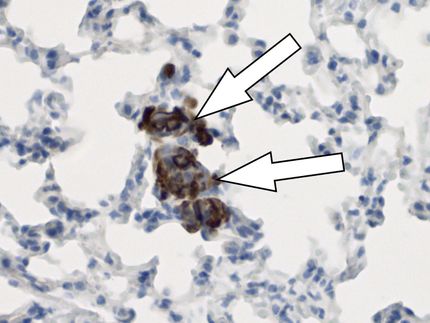SEQUENOM Reports Link Between ICAM1 Gene and Breast Cancer Metastasis
Researchers reported findings that indicate the involvement of the intercellular adhesion molecule gene, ICAM1, in breast cancer metastasis. This is the first study to report that ICAM1 likely plays a major role in the invasion of cancerous cells and in the growth and metastasis of breast tumors, as announced by SEQUENOM. Published in Carcinogenesis, the study entitled "Role of ICAM1 in Invasion of Human Breast Cancer Cells" reports that these results corroborate SEQUENOM's previous finding that genetic variations in the ICAM gene region are associated with the occurrence of metastases and establish a causal role of ICAM1 in invasion of metastatic human breast cancer cell lines.
The key findings demonstrated that the level of ICAM1 protein expression on the cell surface positively correlated with metastatic potential of several human breast cancer cell lines and that ICAM1 mRNA levels were elevated in breast tumor compared to normal tissue. The researchers also observed that ICAM1 down-regulation at the mRNA and protein level led to a strong suppression of human breast cell invasion.
"This represents a significant advancement in the study of genetic biomarkers associated with disease. These results further support the genetic connection between ICAM and the risk for breast cancer and metastasis. In terms of relevance to breast cancer patients, this suggests that detection of ICAM might help direct not only diagnosis, but importantly, therapeutic decisions," said Charles Cantor, Ph.D., Chief Scientific Officer of SEQUENOM. "For us at SEQUENOM, this study also validates that our MassARRAY platform is a flexible, open platform that best allows for specificity and accuracy for clinical researchers conducting SNP genotyping, gene expression or epigenetic analysis."
Most read news
Topics
Organizations
Other news from the department science

Get the life science industry in your inbox
By submitting this form you agree that LUMITOS AG will send you the newsletter(s) selected above by email. Your data will not be passed on to third parties. Your data will be stored and processed in accordance with our data protection regulations. LUMITOS may contact you by email for the purpose of advertising or market and opinion surveys. You can revoke your consent at any time without giving reasons to LUMITOS AG, Ernst-Augustin-Str. 2, 12489 Berlin, Germany or by e-mail at revoke@lumitos.com with effect for the future. In addition, each email contains a link to unsubscribe from the corresponding newsletter.





















































